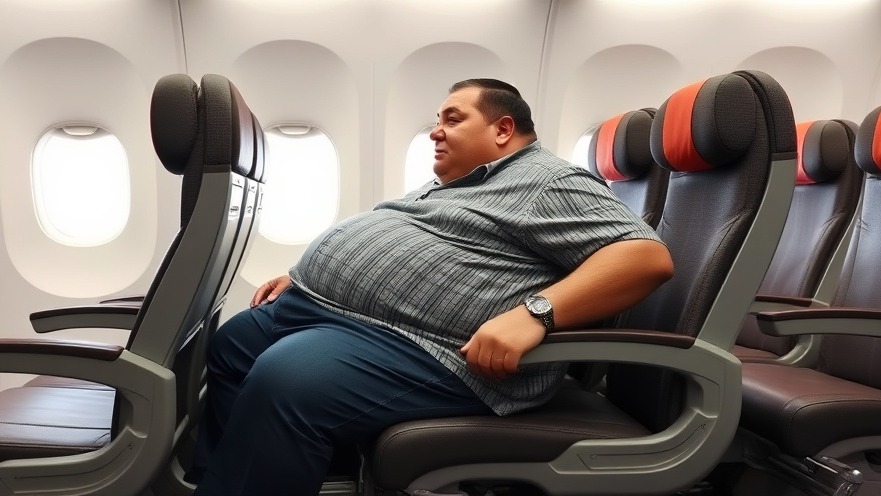
Southwest Airlines: New Policies for Plus-Size Passengers Spark Controversy
DALLAS, Texas: Effective January 27, 2026, Southwest Airlines will reshape its approach to accommodating plus-size passengers by enforcing stricter rules regarding extra seating. This change is part of a broader overhaul in response to the airline's transition to assigned seating—a significant shift from its long-standing tradition of open boarding.
Understanding the New Extra Seat Policy
The new policy mandates that passengers who require an additional seat will need to purchase that seat when booking their flight, rather than waiting until they check in at the airport. Currently, travelers can pay for extra seating in advance with the option for a refund later or request an extra seat at no cost upon arriving at the gate. Under the revamped rules, refunds are not guaranteed and are contingent upon the flight not being fully booked and the tickets being purchased in the same booking class. If a passenger fails to secure an extra seat at the time of booking, they will have to buy one at the airport, with the possibility of being rebooked if the flight is full.
The Impact of Policy Changes on Travelers
Travel agents and industry experts have expressed concern regarding the additional financial burden placed on passengers. Jason Vaughn, who operates the Fat Travel Tested website, highlighted that this policy affects all travelers, not just those needing extra space. He suggested that it could lead to a less comfortable flying experience overall. Vaughn's comments reflect rising frustration among frequent Southwest flyers who have come to rely on certain customer-centric policies that defined the airline's identity.
Broader Implications for Customer Loyalty
Southwest Airlines has withdrawn several signature policies voluntarily, such as its 'bags fly free' option, which once set it apart from competitors. This shift in policy approach has resulted in a growing discontent among long-time customers who feel alienated by these changes. As Vaughn noted, the airline seems to be losing its identity, making it harder for loyal followers to feel connected to the brand.
Future Predictions: More Changes Ahead for Airlines?
With rising operational costs and the increasing pressure from activist investors to enhance revenue and profits, Southwest’s evolution seems poised to continue. The incorporation of additional fees for legroom options and the introduction of red-eye flights indicates a company's strategy focused on maximizing profit over customer experience. This trend raises essential questions about the future of air travel, particularly for budget-conscious travelers seeking comfort and value.
The Importance of Comfort vs. Corporate Decision-Making
This discussion brings to light the broader challenge of how airlines balance corporate needs with customer comfort and satisfaction. Some argue that financial pressures often lead to a diminished focus on what made air travel appealing—the promise of comfort and affordability. The question now is whether Southwest will continue this trajectory or find a way to reconcile its financial goals with customer loyalty.
Practical Tips for Navigating the New Policy
Considering these recent changes, consumers should be proactive. Here are a few tips:
Book Early: If you anticipate needing extra space, ensure you book your tickets well in advance to secure the additional seat.
Check Refund Policies: Review the new policies carefully to understand the conditions under which refunds can be requested.
Stay Informed: Keep an eye on future updates from airlines as changes may continue to evolve.
Conclusion: Uncertainty Ahead in Air Travel
The tightening of Southwest Airlines' policy on extra seats reflects broader challenges in the air travel industry as the airline attempts to navigate financial pressures while maintaining customer satisfaction. It’s a pivotal moment for both the airline and its passengers. Travelers must stay informed and adapt to these changes to ensure a smoother flying experience. As the airline landscape continues to evolve, it’s essential to vocalize concerns and adapt to the ever-changing norms of air travel.
 Add Element
Add Element  Add Row
Add Row 



Write A Comment